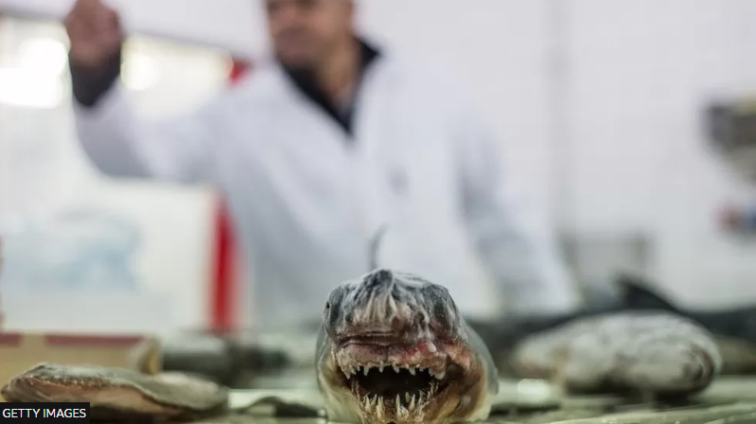
Audio By Carbonatix
The name alone - "Fishrot" - conjures up the unpleasant stench of corruption.
The financial scandal - named after a 2019 Wikileaks release called the "Fishrot Files" - stretches from Namibia to Iceland, taking in government ministers and involving at least $20m (£16.6m).
The southern African country is now preparing for the biggest corruption trial in its short history.
It is all about fish quotas - not an immediately obvious source of corruption, but in Namibia they are very lucrative.
With nearly 1,600km (1,000 miles) of South Atlantic coastline, fishing is one of the country's main industries, accounting for about 20% of export earnings.
In the Fishrot scandal, a number of prominent politicians and businessmen are accused of running schemes to get control of valuable fishing quotas, for example those held by the state fishing company Fishcor. It is alleged that they then diverted them to the Icelandic fishing company Samherji in return for kickbacks.
Ten suspects, including former Fisheries Minister Bernard Esau and ex-Justice Minister Sakeus Shangala, are alleged to have benefitted.
All those accused, some of whom have been in detention for over three years now, have protested their innocence. Samherji, one of Iceland's most important companies, has strongly denied allegations of bribery.
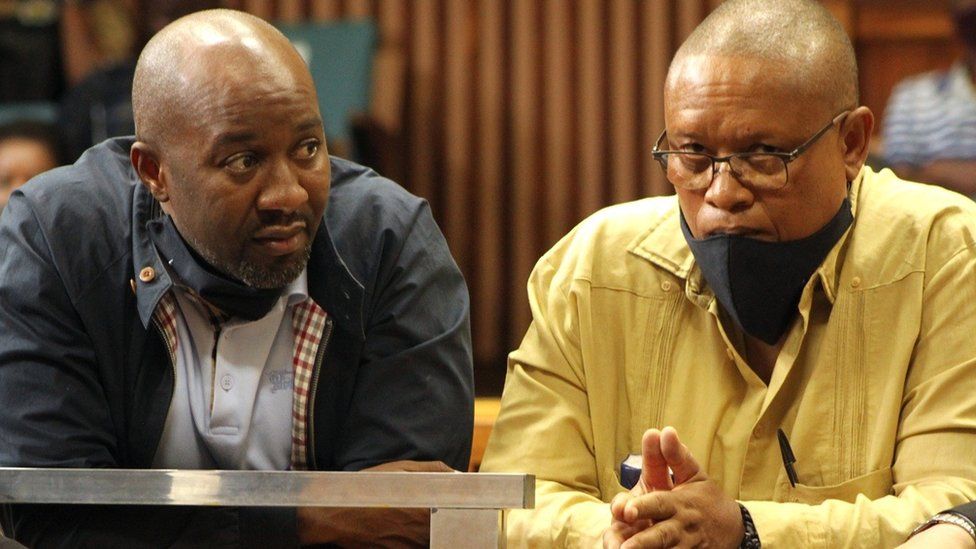
The scandal has also damaged the wider Namibian fishing industry. Jobs have gone and government revenue has been lost - that money should have been used to assist the poorest in one of the most unequal societies in the world.
Firstly, some of the money earned by Fishcor was supposed to have gone to social programmes such as drought and unemployment relief. Secondly, as the fishing quotas were diverted, Namibian fishing suffered as a whole.
The scandal first broke in November 2019, when WikiLeaks shared over 30,000 documents - including company e-mails, contracts, presentations and photos - leaked by a former Samherji manager in Namibia, Johannes Stefansson. He alleged that the company had colluded with a group of influential figures to get access to the fishing quotas at below the market price.
This has proved to be a complex case and the slow legal process is expected to end up in a court soon, but it is also having a real-world impact.
It is in places like Walvis Bay, the country's principal harbour, where this can be seen.
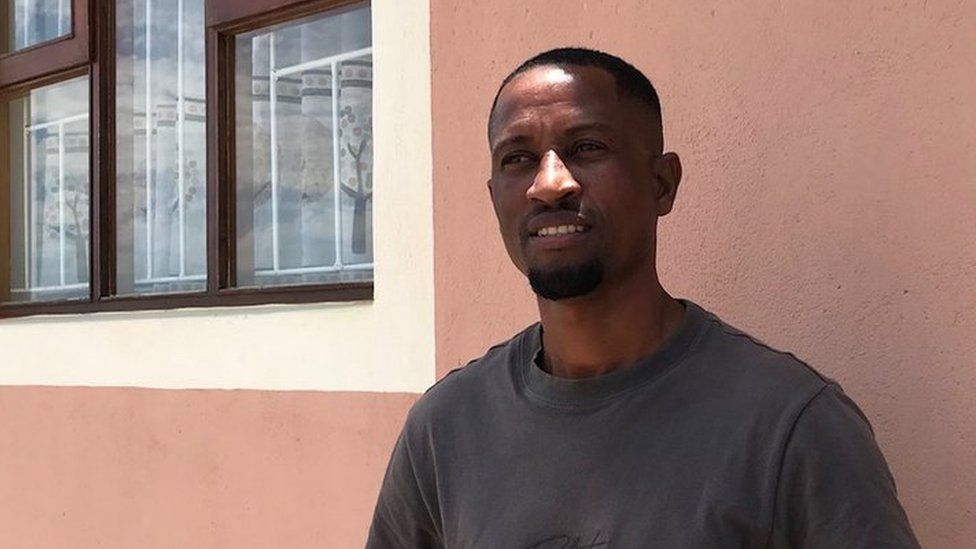
Jason Ipinge lives in Narraville, one of Walvis Bay's main townships, where single-storey dwellings creep right up to the edge of the desert.
He lost his job on one of the big factory trawlers belonging to Samherji back in 2018.
The ship, the Heinaste, had been leased by one of Samherji's subsidiaries to a local joint venture company, ArcticNam that brought three Namibian quota holders on board, and with it a lot of fish.
After some profitable years, it appears relations between the partners soured. There was an argument between the Namibian and Icelandic ends of the business over whether promised jobs had materialised, it has been reported.
Mr Ipinge says the fishermen working on the vessel were completely in the dark and only realised things had gone toxic when the entire crew was told to leave the ship without warning or explanation.
"I've lost a lot in life and my dignity has also been affected," he told me. "In the past I was able to help my parents back home in my village, but now I'm not able to send something home."
Mr Ipinge's story is far from unique. Ellison Tjirera and Rui Tyitende, two researchers from Namibia's National University, talked to dozens of people in a similar situation.
"We heard stories of people who lost their partners because they couldn't sustain their families any more, we've heard stories of people who had to take their kids out of school and send them to their grandparents," Mr Tjirera says.
"Some resorted to crime. So I think you can get a sense of how this huge corruption scandal touched ordinary lives."
Unsurprisingly many companies in Namibia's crowded fishing sector took a hit. Even those who may have had nothing to do with the scheme have been affected, as Fishcor's practices were brought into question.
At Princess Brand Processing (PBP), one of the biggest fish factories in sub-Saharan Africa, they are still struggling.
PBP catches horse mackerel, a species sold widely on the African market, and brings the fish to shore for processing. It has taken a labour-intensive approach that has created 650 jobs, according to general manager Adolf Burger.
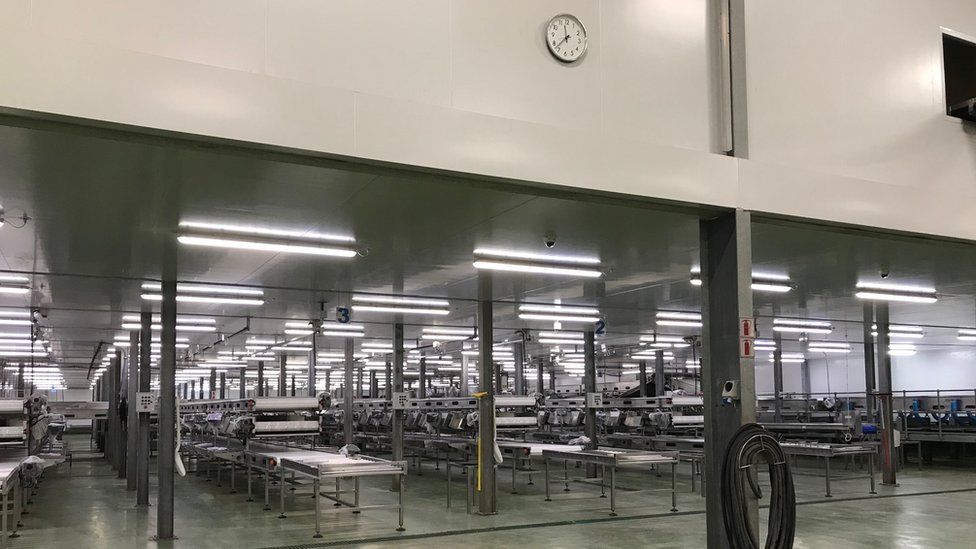
"In Europe this is done with 10 or 15 people," Mr Burger says. "It was possible to put up a fully automatic factory here, but the idea is to create jobs, so we made it as manual as possible."
When the Fishrot scandal broke, the company lost a huge quota allocation that had been agreed with Fishcor.
Creating jobs and prosperity for Namibians was the dream when the country became independent 33 years ago and finally laid claim to its wealth of marine resources, which had been exploited for decades by other nations.
The new government under the liberation movement-turned political party Swapo (South West Africa People's Organisation) adopted a policy of "Namibianisation", giving fishing rights to the country's citizens and forcing outsiders into joint ventures if they wanted access to its resources.
But a policy that was good in principle has run into problems, according to Graham Hopwood, executive director of the Institute for Public Policy Research (IPPR) in Namibia.
"The rights to various different types of fish in our sea are given on extended periods of 10, 15 years and so on to companies that are Namibian, or majority-Namibian owned," he says.
"That, in theory is good, but these are mostly briefcase companies that only exist on paper, often owned by people who have no knowledge of fishing and no infrastructure, but see this as a means of making money; and a lot of these people are also politically connected."
The IPPR is not alone in its assessment that the opaque way in which the industry is run and regulated has made it vulnerable to abuse.
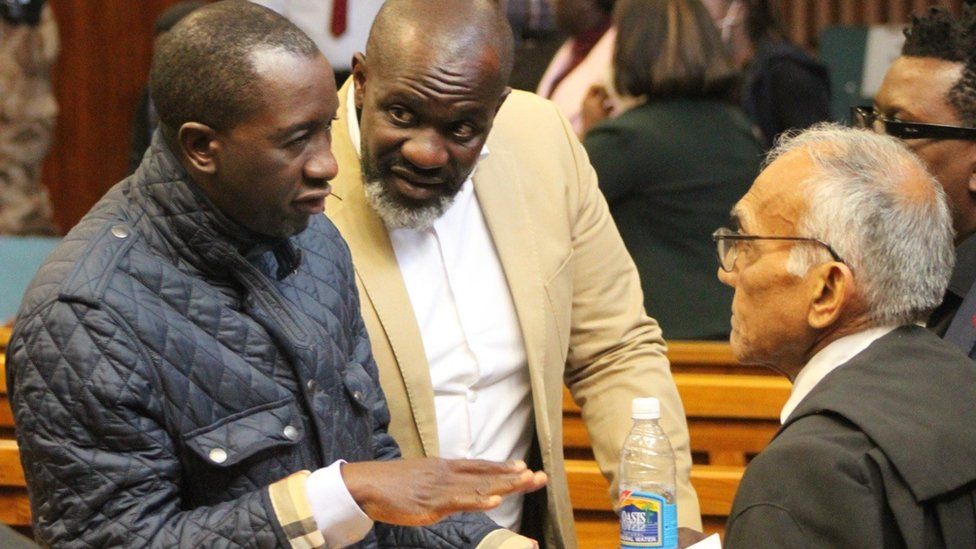
When the Fishrot case finally comes to court later this year, it will be the biggest trial in the country's history.
The charges against the suspects are laid out in a 144-page indictment and include racketeering, bribery, money laundering and tax evasion.
The defendants are further accused of manipulating a bilateral cooperation agreement with Angola to divert more quotas to Samherji at very low prices.
The scandal has come at a political cost too.
Swapo suffered its worst results in elections just days after the Fishrot story broke.
"Politically they are in the intensive care unit," as analyst Rui Tyitende puts it.
In Iceland it is not just the reputation of one of the most important companies that is under scrutiny, but the image of the entire country which has slipped in the international corruption index over the past years.
Samherji has consistently denied allegations of bribery. When the scandal broke, it commissioned a Norwegian law firm to conduct an investigation. Following its report the company issued a statement, which acknowledged the issue while maintaining there was no bribery involved.
"It was necessary to pay more attention to how payments were made, who they were made to and on what basis, who had the authority to give instructions about them and where they should be received," Samherji said. "It is also clear that the underlying agreements behind the payments should have been precise and formal."
The company also said it had taken extensive steps to avoid mistakes being made in the future.
It blames any criminal activity that may have occurred on the whistle blower, Johannes Stefansson.
But Mr Stefansson says others authorised payments and he is set to be the prosecution's most important witness at the trial later this year.
Latest Stories
-
Ghana EXIM Bank develops 5-year export-led growth strategy to drive trade expansion
15 minutes -
Big Smiles, Bigger Bounces: Kids take over the fun at the Joy Party in the Park
48 minutes -
Joy FM Party in the Park 2025: Kwabena Kwabena takes centre stage
1 hour -
Ghana-Nigeria cyber-fraud network dupes over 200 victims of $400,000
1 hour -
Tackling terrorism requires jobs and anti-corruption drive, not strikes alone – Nigerian security analyst
1 hour -
Terror attacks in Nigeria affect all faiths, not only Christians – Security analyst
1 hour -
$120,000 stolen from Ghanaian financial institution by hackers – INTERPOL
1 hour -
Modern security management defined by trust – IGP
1 hour -
The True Significance of Christmas: Pagan origins or Christian celebration
1 hour -
US strikes on terrorists in Nigeria timely and strategic – Security analyst
2 hours -
Patrons dance through drizzles at Joy FM’s Party in the Park 2025
2 hours -
Samini thrills fans at the 2025 Samini Xperience concert
2 hours -
Gov’t targets 99.9% electricity access by 2030 as Awurahae, Sapor get power after decades
2 hours -
Ghana EXIM Bank repositioned to reduce import bill on rice, poultry – CEO assures
2 hours -
Photos: Hundreds turn out for Joy FM’s 2025 family party in the park
3 hours

